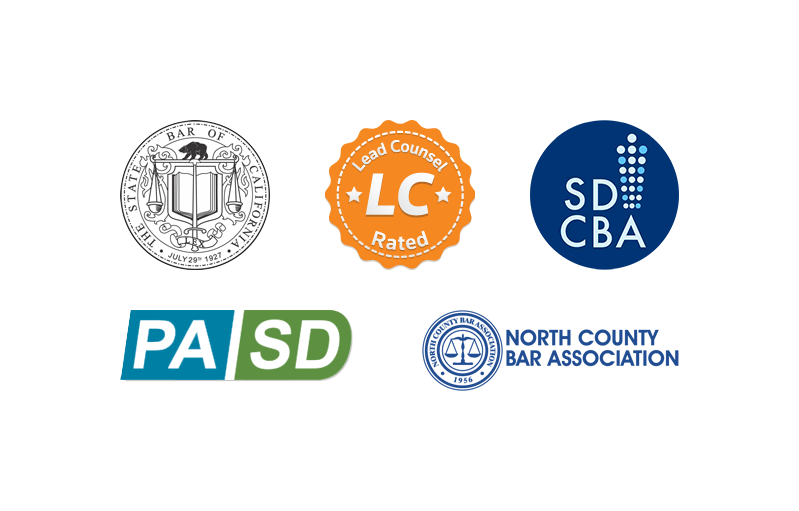Trusts FAQ
When an individual is planning for the distribution of their estate, a trust is one of the legal instruments available to them. However, many people don’t understand what a trust is or how it works.
Q: What Is a Revocable Trust?
A:This legal document, also known as a trust agreement, is the means by which an individual manages their assets while they are alive and dictates how they want the remaining assets distributed after their death. This document may be modified or terminated during the person’s lifetime, which makes it “revocable.”
A trust is “funded” by transferring assets such as investments, real estate, and bank accounts to it during the individual’s lifetime. When the individual passes away, the person they have named as the trustee pays all taxes and claims out of the trust and distributes the remaining assets according to the individual’s wishes.
Q: What Is Probate?
A: Probate is the process an estate goes through in the courts after an individual’s death to transfer their assets to their beneficiaries. During this process, the court appoints a personal representative if necessary to administer the estate by paying taxes, creditors, and other expenses and then distributing the remainder to the person’s beneficiaries.
Q: Do All Assets Go Through Probate?
A: No. The only assets that must go through the probate process are those a deceased individual owned in their individual name. If they owned assets jointly “with rights of survivorship” to a spouse or another person or as “tenants by the entirety” with their spouse, they may avoid probate. This also applies to assets held in trust, such as annuities, retirement accounts, and life insurance policies with designated beneficiaries, as well as investments designated as “in trust for” or “pay on death” to a specific beneficiary.
Q: How Can Probate Be Avoided With Revocable Trusts?
A: When an individual transfers their assets to a trust during their lifetime, there is no need for a court-ordered transfer of those assets after the person’s death. Since court appointment is unnecessary, the trustee is able to manage the trust immediately and directly. It is vital to note that a trust must be fully funded to avoid probate. You should expect any non-trust assets to be subject to the probate process.
Q: How Can Someone Be Sure Their Assets Have Been Properly Transferred to Their Trust?
A: When assets are transferred to a trust, the deed, title, stock certificate, or account statement will make some reference to the trust or trustee. An attorney can also help ensure that all assets are properly transferred to the trust and that any related paperwork is legally binding.
Q: What Is the Benefit of Avoiding Probate?
A: Avoiding the probate process can expedite the administration and succession of an estate and may also lower the cost. There will always be some unavoidable delays and costs associated with settling the deceased’s estate, however, such as filing a federal estate tax return. In some ways, trust administration is similar to probate administration, as the trustee is tasked with collecting and valuing the assets of the trust, determining beneficiaries and creditors, paying expenses and taxes, and then distributing the remaining assets. These are many of the same functions a probate court would otherwise be responsible for. In either case, the personal representative or trustee is entitled to a fee for their services.
The total cost savings of avoiding probate often depend on the necessity for the services of professionals such as estate liquidators, accountants, and attorneys. The greatest benefit most individuals see in avoiding probate is by transferring real estate to a trust during their lifetime. This is especially true when the person owns real estate in multiple states, as each state typically requires its own probate process for any assets not placed in a trust.
Q: How Long Do Creditors Have to File a Claim Against an Estate?
A: In the state of California, creditors have one year from the time of the decedent’s death to file a claim against an estate. The personal representative or trustee may be hesitant to distribute any assets of the trust to the decedent’s beneficiaries until they are sure any and all claims have been settled.
Q: Can a Trust Protect Assets From Claims by Creditors?
A: Trust assets are generally not protected against claims by the decedent’s creditors. During the individual’s lifetime, the assets in their revocable trust are subject to creditor claims just as they would be if they were owned by the individual rather than the trust. If the assets remain in the trust after their death, the beneficiaries’ interests may have limited protection from creditors via “spendthrift” provisions written into the trust document.
When an individual is funding their revocable trust, they should consider certain assets, such as property a married couple owns as “tenants by the entirety,” and closely follow their attorney’s advice, as some assets may offer better protection from creditors. An estate planning attorney can offer expert counsel on the pros and cons of funding a trust using various types of assets.
Q: What Is the “Elective Share”?
A: California legislation provides special rights to an individual’s spouse when they die, guaranteeing them part of the estate even if they are not named in a trust or other estate planning documents. These provisions give the surviving spouse rights to half of any assets that are considered to be community property as well as half of the assets that are termed “quasi-community” property.
In addition to the community property, the spouse may be entitled to a percentage of the decedent’s separate property or that which the individual owned alone. The exact amount depends on factors such as how many children and grandchildren the person has. In some cases, however, the surviving spouse may claim the entire estate through the elective share, even if there is a will.
Q: How Are Federal Income Taxes Paid on Income From a Trust?
A: During the individual’s lifetime, deductions and income from a revocable trust are reported on their regular income tax return. When a trust becomes irrevocable, or trust income is no longer reported using the individual’s social security number, the trust becomes a separate entity. At such a time, the trustee must file a fiduciary income tax return annually. The trust is then given a deduction for beneficiary distributions, thus passing income and deductions on to the beneficiaries to be reported on their individual income tax returns. Any income that remains in the trust and is not distributed is taxable to the trust.
Place Your Trust in a Qualified Estate Planning Attorney
If you are considering placing your assets in a trust to be distributed to your loved ones after your death, it is always wise to seek the legal counsel of a skilled estate planning attorney. Paul V.L. Campo, Attorney at Law, can answer your questions and advise you on the best strategy for protecting your assets and providing for your loved ones. Visit our website today to see how we can help.
Start Today
The best time to act was yesterday. The second best time is right now.
Office Location
Paul V. L. Campo Attorney At Law
316 South Melrose Drive
Suite 106
Vista, CA 92081
Phone: 760-639-1680
Fax: 760-639-1684
Map & Directions














